by Nick Drew | Fri 26 Aug 2016
Fifty Shades of Grey… The problem of non-compliant imports.
The UK statutory obligations on emissions, safety and noise – which are in turn based on European Union directives, effectively regulations – apply to anyone selling machines into Europe. They are equally applicable to individuals placing machines on our domestic market as they are to EU manufacturers. Standards on these three crucial areas of machine specification vary widely around the world and, whilst it is perfectly acceptable for a manufacturer outside the EU to supply a piece of kit that’s fully compliant to EU law, and place it on the UK market, problems arise when machinery that was never intended for Europe finds its way into this country.
Although it is the seller who holds the primary responsibility for ensuring that machinery sold is compliant, there could also be significant legal ramifications for an end user who find themselves, however unwittingly, in possession of equipment that is not EU compliant. There are various pieces of legislation relating to emissions, for instance, which could place restrictions on where plant can be used, and those regulations will apply to when the machine was first placed on the market in Europe. This is a key point - it is not the year that the machine was manufactured but the year when it was first placed on the EU market that counts. So a machine built and sold into a country outside the EU in, for example, 2012, and placed on the market in the EU for the first time during 2016, must meet all the requirements that apply in 2016. The same applies to the safety and noise requirements but, with new stages requiring ever-reduced emissions, the 2012 machine is very unlikely to be compliant.
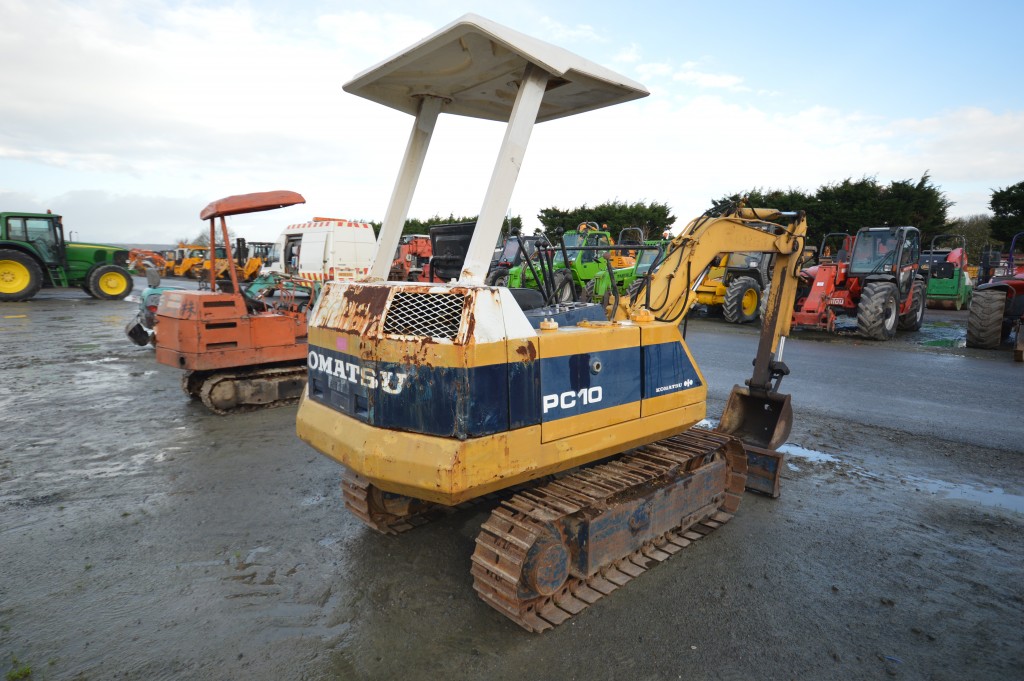 In addition, some of the largest civil engineering and infrastructure projects have already set the bar very high in terms of the emissions it permits from construction machinery, which means a non-compliant machine will not be permitted on those sites in the first place. It is worth noting that in September 2015 the Greater London Authority imposed strict requirements for machines used on major sites in defined Low Emission Zones, and these will become stricter in 2020. This April’s Commons Select Committee report also calls for dozens more clean air zones to be designated in the UK’s towns and cities.
With regards to safety, Malcolm Kent, Senior Technical Consultant CEA, said, “The key consideration for CEA is safety! I have seen excavators operating here that are wholly unsuitable for lifting duties. Although these units were obviously intended for that purpose in that they have lifting eyes on the tipping link, hose-burst valves, a lifting chart or overload warning systems were all absent. That makes these units unsafe for those duties, and if somebody bought one of those machines, and an accident on site was the result, they could be in serious trouble.”
In addition, some of the largest civil engineering and infrastructure projects have already set the bar very high in terms of the emissions it permits from construction machinery, which means a non-compliant machine will not be permitted on those sites in the first place. It is worth noting that in September 2015 the Greater London Authority imposed strict requirements for machines used on major sites in defined Low Emission Zones, and these will become stricter in 2020. This April’s Commons Select Committee report also calls for dozens more clean air zones to be designated in the UK’s towns and cities.
With regards to safety, Malcolm Kent, Senior Technical Consultant CEA, said, “The key consideration for CEA is safety! I have seen excavators operating here that are wholly unsuitable for lifting duties. Although these units were obviously intended for that purpose in that they have lifting eyes on the tipping link, hose-burst valves, a lifting chart or overload warning systems were all absent. That makes these units unsafe for those duties, and if somebody bought one of those machines, and an accident on site was the result, they could be in serious trouble.”
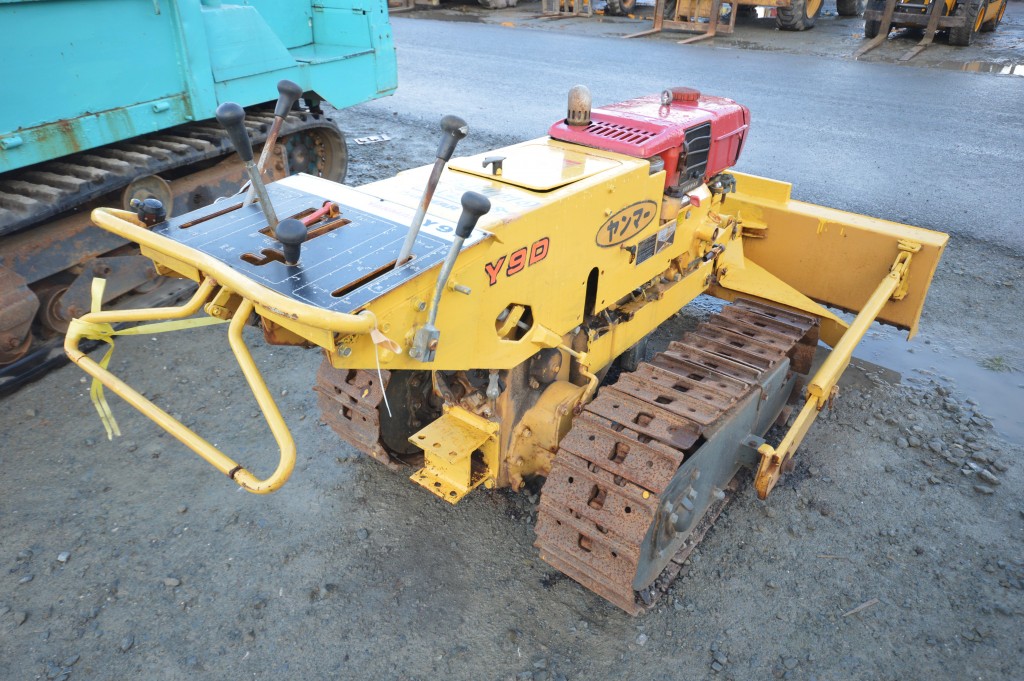 Moreover the potential penalties for knowingly supplying a machine that does not conform to EU legislation are high, and they apply to anyone who is placing them on the market. If a contractor or hirer goes to an overseas auction, buys a machine and then brings it into the UK themselves, then they would equally be subject to the full requirements of the law – and penalties if the machine is not compliant. These can include confiscation of the goods, with the consequential loss of the capital outlay, and a heavy fine of up to £5.000 per offence. For a contractor, if the HSE finds a non-compliant piece of machinery in operation on site, then either an improvement or prohibition notice could be issued.
So how can hirers or contractors protect themselves from unknowingly buying a non-compliant machine? “If a unit was genuinely intended by the manufacturer for the European market it will have with it the original declaration of conformity” explained Mr Kent. “There are various companies that will sell you a retrospective declaration of conformity for any machine that you nominate for a fee anywhere up to £1500.00, and a piece of paper will purport to be a genuine document. It will, however, be signed by someone other than the manufacturer and is entirely bogus! If you are being offered a declaration of conformity which is obviously not from the OEM, then this is an indication that the machine is a non-compliant import.”
Moreover the potential penalties for knowingly supplying a machine that does not conform to EU legislation are high, and they apply to anyone who is placing them on the market. If a contractor or hirer goes to an overseas auction, buys a machine and then brings it into the UK themselves, then they would equally be subject to the full requirements of the law – and penalties if the machine is not compliant. These can include confiscation of the goods, with the consequential loss of the capital outlay, and a heavy fine of up to £5.000 per offence. For a contractor, if the HSE finds a non-compliant piece of machinery in operation on site, then either an improvement or prohibition notice could be issued.
So how can hirers or contractors protect themselves from unknowingly buying a non-compliant machine? “If a unit was genuinely intended by the manufacturer for the European market it will have with it the original declaration of conformity” explained Mr Kent. “There are various companies that will sell you a retrospective declaration of conformity for any machine that you nominate for a fee anywhere up to £1500.00, and a piece of paper will purport to be a genuine document. It will, however, be signed by someone other than the manufacturer and is entirely bogus! If you are being offered a declaration of conformity which is obviously not from the OEM, then this is an indication that the machine is a non-compliant import.”
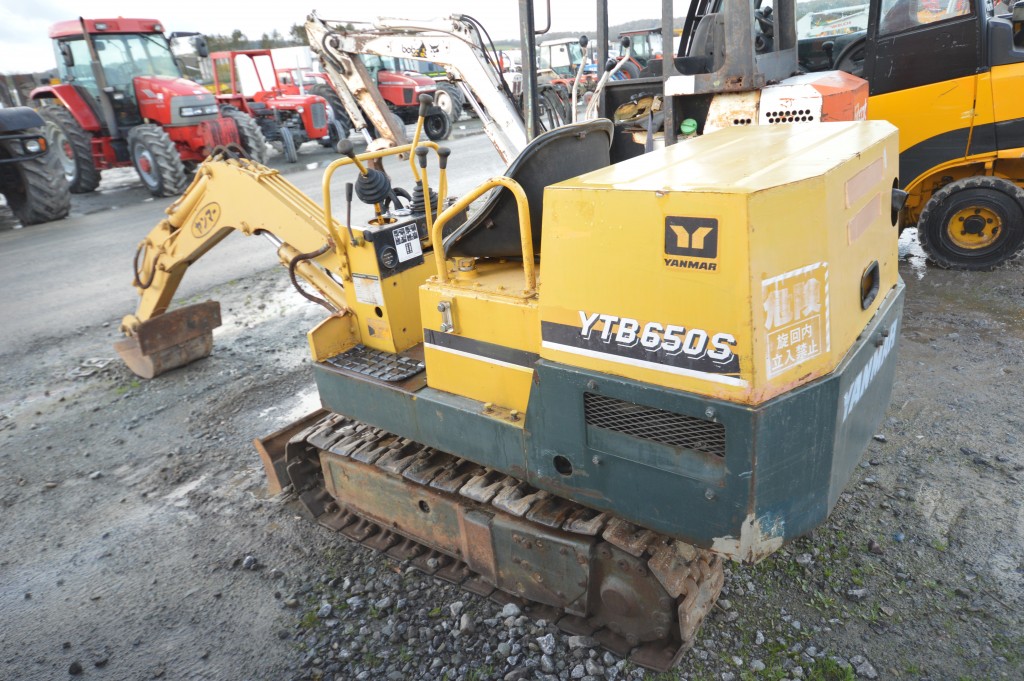 Machinery that is discovered to be non-compliant is usually found at auctions, what is less clear is how serious the problem might be in terms of private sales – and a buyer’s watchwords should always be caveat emptor. In terms of classes of plant the CEA has identified an active trade in tracked dumpers from the Far East. “I recently saw a brand new tracked dumper sold at auction” recalls Mr Kent, “and the new owner was delighted that he got a new machine for a very good price, but the unit was without any of the appropriate ROPS and FOPS protection.
Machinery that is discovered to be non-compliant is usually found at auctions, what is less clear is how serious the problem might be in terms of private sales – and a buyer’s watchwords should always be caveat emptor. In terms of classes of plant the CEA has identified an active trade in tracked dumpers from the Far East. “I recently saw a brand new tracked dumper sold at auction” recalls Mr Kent, “and the new owner was delighted that he got a new machine for a very good price, but the unit was without any of the appropriate ROPS and FOPS protection.
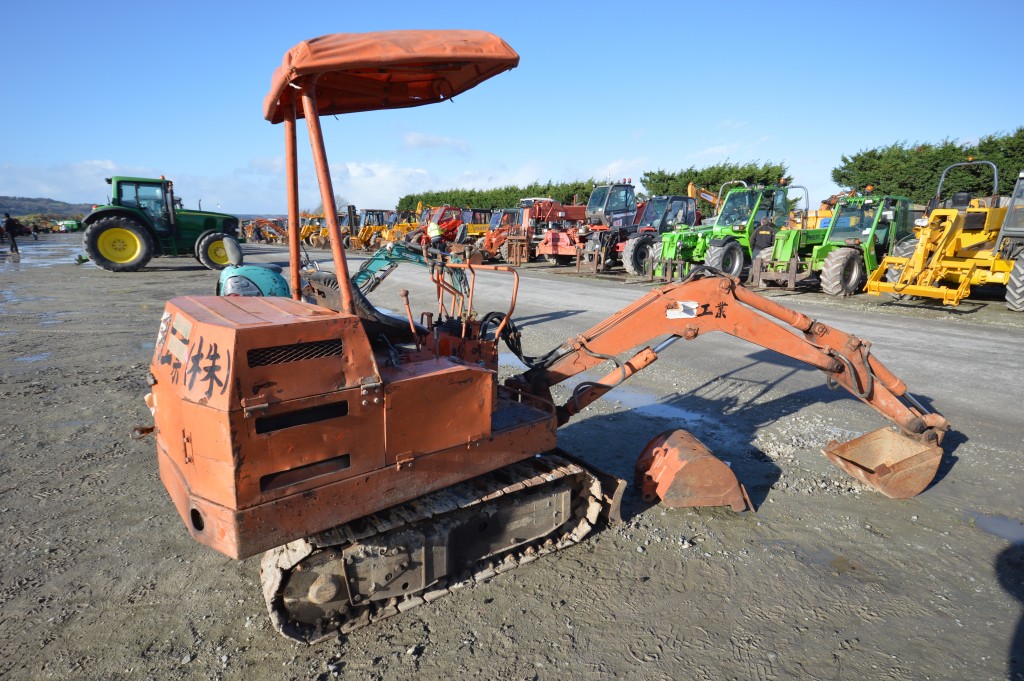 “This is amongst the most dangerous example of non-compliant plant that I have ever encountered. If the appropriate protection is fitted, and an accident occurs, there is a good chance the operator will survive. Conversely, if ROPS and FOPS made to the appropriate standards are absent then the likelihood is they will be crushed and killed.”
So what does the future hold? Given the demands on the construction equipment sector, from future infrastructure projects in particular, could we see a potential feeding frenzy of new contracts satisfied with an unpalatable diet of grey imports? Wherever there is an increase in demand there is always the potential to suck in non-compliant machinery because there will always be those who are looking to make easy money – a company that wins a contract, needs five new machines and does not particularly care where they came from. If big projects like HS2 demand strict checks on compliant machinery onsite there is a danger that the problem will be pushed further down the food chain to smaller sites and operators.
From a legal perspective the question of who is doing the importing remains frustratingly obscure. If an auction house is found to be in possession of non-compliant machinery that it is selling to an unsuspecting public, then what is their legal position? One opinion is that they do not own the plant – they sell it and take commission – so they are not bound by the law. However, the Construction Equipment Association has a very different opinion.
“This is amongst the most dangerous example of non-compliant plant that I have ever encountered. If the appropriate protection is fitted, and an accident occurs, there is a good chance the operator will survive. Conversely, if ROPS and FOPS made to the appropriate standards are absent then the likelihood is they will be crushed and killed.”
So what does the future hold? Given the demands on the construction equipment sector, from future infrastructure projects in particular, could we see a potential feeding frenzy of new contracts satisfied with an unpalatable diet of grey imports? Wherever there is an increase in demand there is always the potential to suck in non-compliant machinery because there will always be those who are looking to make easy money – a company that wins a contract, needs five new machines and does not particularly care where they came from. If big projects like HS2 demand strict checks on compliant machinery onsite there is a danger that the problem will be pushed further down the food chain to smaller sites and operators.
From a legal perspective the question of who is doing the importing remains frustratingly obscure. If an auction house is found to be in possession of non-compliant machinery that it is selling to an unsuspecting public, then what is their legal position? One opinion is that they do not own the plant – they sell it and take commission – so they are not bound by the law. However, the Construction Equipment Association has a very different opinion.
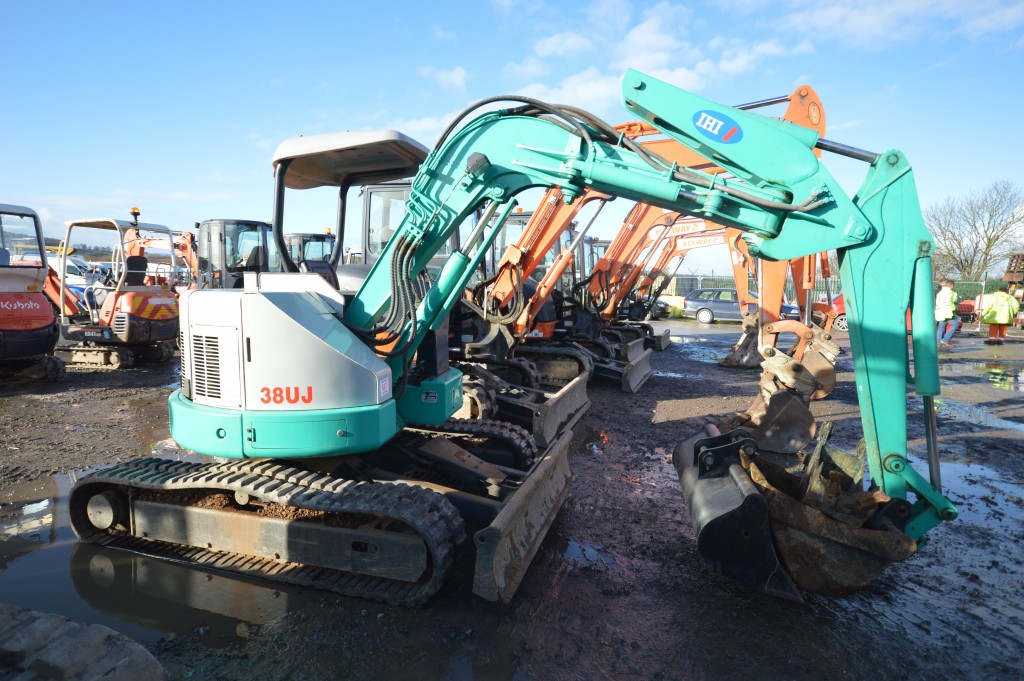 “We have studied the legislation and believe in our reading of the law, that they do have a legal responsibility to ensure machinery is compliant,” Mr Kent concludes, “but that needs to be a position that is tested in court. Indeed, the European Commission Guide sets out the responsibility to auction houses very clearly, that they are acting as a dealer and they should ensure that it is compliant.”
The CEA has been monitoring the sale of obviously non-compliant through UK auctions for many years. Tim Faithfull, the CEA Director of Member Services, says, “It really isn’t difficult. The machines for sale are listed on the auction websites and, by checking with the manufacturer, we know very quickly the year of manufacture, the territory for which it was intended to be used and whether it has a declaration of conformity. We then give all the information to the UK enforcement authorities for safety, emissions and noise, with a suggestion that they take appropriate action.”
“We have studied the legislation and believe in our reading of the law, that they do have a legal responsibility to ensure machinery is compliant,” Mr Kent concludes, “but that needs to be a position that is tested in court. Indeed, the European Commission Guide sets out the responsibility to auction houses very clearly, that they are acting as a dealer and they should ensure that it is compliant.”
The CEA has been monitoring the sale of obviously non-compliant through UK auctions for many years. Tim Faithfull, the CEA Director of Member Services, says, “It really isn’t difficult. The machines for sale are listed on the auction websites and, by checking with the manufacturer, we know very quickly the year of manufacture, the territory for which it was intended to be used and whether it has a declaration of conformity. We then give all the information to the UK enforcement authorities for safety, emissions and noise, with a suggestion that they take appropriate action.”
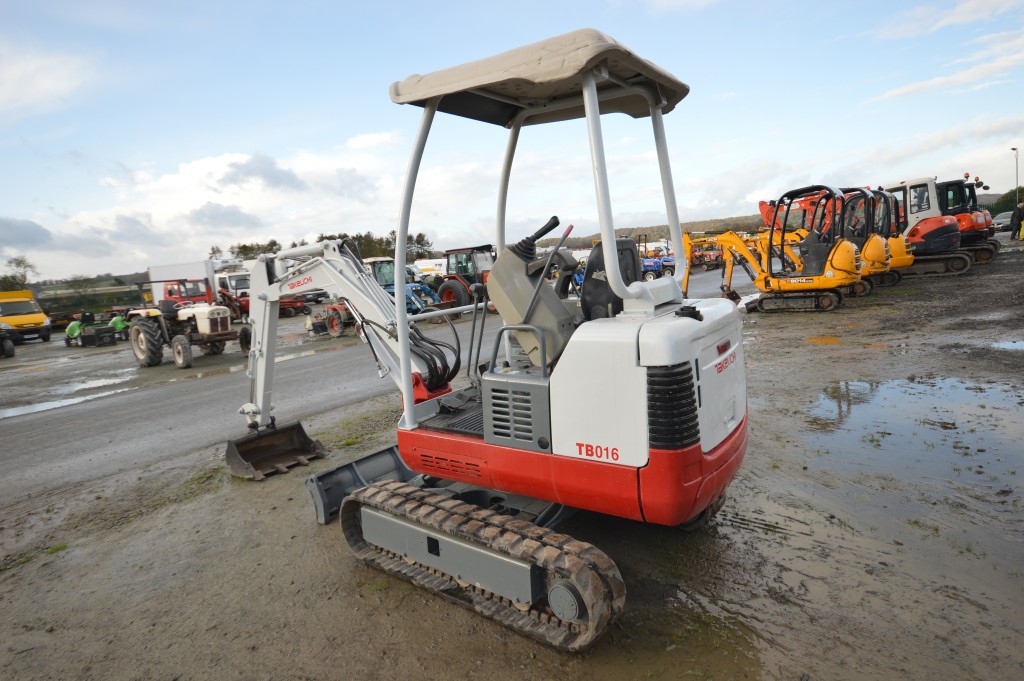 So, has the situation improved? “Sadly not”, adds Tim. “in the past, apart from the very occasional letter, or the wagging of a finger, the authorities have done absolutely nothing of which we are aware to curb the sale of non-compliant plant at auctions. More recently, our partners at the Plant and Agricultural National Intelligence Unit (part of the Met Police) have taken a closer interest in the criminality aspects of non-compliance. Indeed, during March, PANIU hosted a meeting at New Scotland Yard with various enforcement agencies, when it was agreed that they would work collaboratively together on this issue of concern. So we are hopeful that at last, appropriate action will be taken to address the serious implications that these machines have for the safety of the operator, the safety of the public, the potential impact on plant owners, contractors and hire companies, the effect on air quality and much, much more.”
The message from the CEA is, think carefully about what machines you buy and use. There are plenty of compliant machines for sale, including at auctions, so why risk buying a dodgy one?
So, has the situation improved? “Sadly not”, adds Tim. “in the past, apart from the very occasional letter, or the wagging of a finger, the authorities have done absolutely nothing of which we are aware to curb the sale of non-compliant plant at auctions. More recently, our partners at the Plant and Agricultural National Intelligence Unit (part of the Met Police) have taken a closer interest in the criminality aspects of non-compliance. Indeed, during March, PANIU hosted a meeting at New Scotland Yard with various enforcement agencies, when it was agreed that they would work collaboratively together on this issue of concern. So we are hopeful that at last, appropriate action will be taken to address the serious implications that these machines have for the safety of the operator, the safety of the public, the potential impact on plant owners, contractors and hire companies, the effect on air quality and much, much more.”
The message from the CEA is, think carefully about what machines you buy and use. There are plenty of compliant machines for sale, including at auctions, so why risk buying a dodgy one?